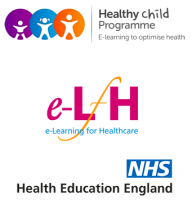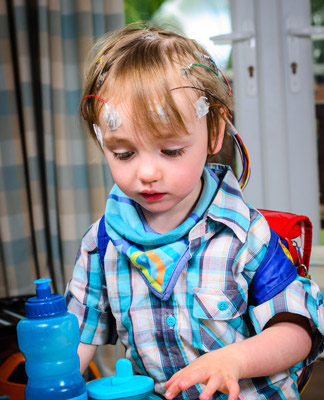Epilepsy course for Medical Doctors



This more advanced session will give you an understanding of childhood epilepsies and epilepsy care, so you will have the knowledge and confidence to make a positive difference to a child living with the condition and understand your role in the child’s ongoing care.
Learning objectives
By the end of this session you will be able to:
- Explain what epilepsy, seizures and epileptic seizures are
- Identify the different types of epileptic seizures and how they are diagnosed
- Describe the epidemiology of epilepsy and its impact on school-age children
- Outline the care pathway for the treatment of undiagnosed epilepsies
This session uses self assessments that help you check what you have learnt. You do not have to use them and your answers are not seen by anyone else.
Before commencing this session you should complete:
- HSC session Non-epileptic Attack Disorders (411-017)
Kirsten is the Roald Dahl Sapphire Epilepsy Nurse Specialist at King’s Mill Hospital, Mansfield, where she has worked since 2007.
She has 25 years’ experience in paediatric nursing, a Diploma in Child Nursing (Nottingham University, 1992) and a Diploma in Epilepsy Care (Leeds Metropolitan University, 2006).
Kirsten enjoys being part of the paediatric service at KMH and is committed to continuing to provide high quality care for children and young people with epilepsy and their families.


Dr Colin Dunkley was appointed as consultant paediatrician in 2005. He trained in Leeds and Nottinghamshire and completed an epilepsy fellowship in 2004 at Great Ormond Street Hospital, London. He works at King’s Mill and Newark hospitals and holds monthly teenage clinics at Queen’s Medical Centre, Nottingham.
Colin maintains his expertise in general paediatrics, neurodisability and epilepsy. He is the paediatric lead for audit, guidelines and clinical governance and chair of the Children’s Epilepsy Workstream in Trent and Epilepsy12 National Audit. He is also content development manager for the British Paediatric Neurology Association Paediatric Epilepsy Training Courses.
- 03_06_10 ECG III
- Posted By eIntegrity Healthcare e-Learning
- Posted Date: 2024-11-02
- Location:Online
- This third and final session about the ECG discusses cardiac conduction and arrhythmias.
- 03_06_09 ECG II
- Posted By eIntegrity Healthcare e-Learning
- Posted Date: 2024-11-02
- Location:Online
- This session follows on from ECG I and presents the ECG as an electrical map of the heart. It details the abnormalities expected with myocardial infarction and left ventricular hypertrophy.
- 03_06_08 ECG 1
- Posted By eIntegrity Healthcare e-Learning
- Posted Date: 2024-11-02
- Location:Online
- This session explains how to record an ECG, the structure of the ECG and how to interpret the results. It further explains the use of the ECG in clinical practice.
- 03_06_07 Pulmonary function test interpretation
- Posted By eIntegrity Healthcare e-Learning
- Posted Date: 2024-11-02
- Location:Online
- This session will describe some of the basic respiratory investigations, and explain the relevance of the results obtained.
- 03_06_06 An alternative approach to acid-base abno...
- Posted By eIntegrity Healthcare e-Learning
- Posted Date: 2024-11-02
- Location:Online
- This session contains a link to the BJA Education article followed by a series of self assessment multiple choice questions.<br><br>The article will open in a new window or tab depending on your browser.<br><br> CPD credits are awarded by the RCoA for the







